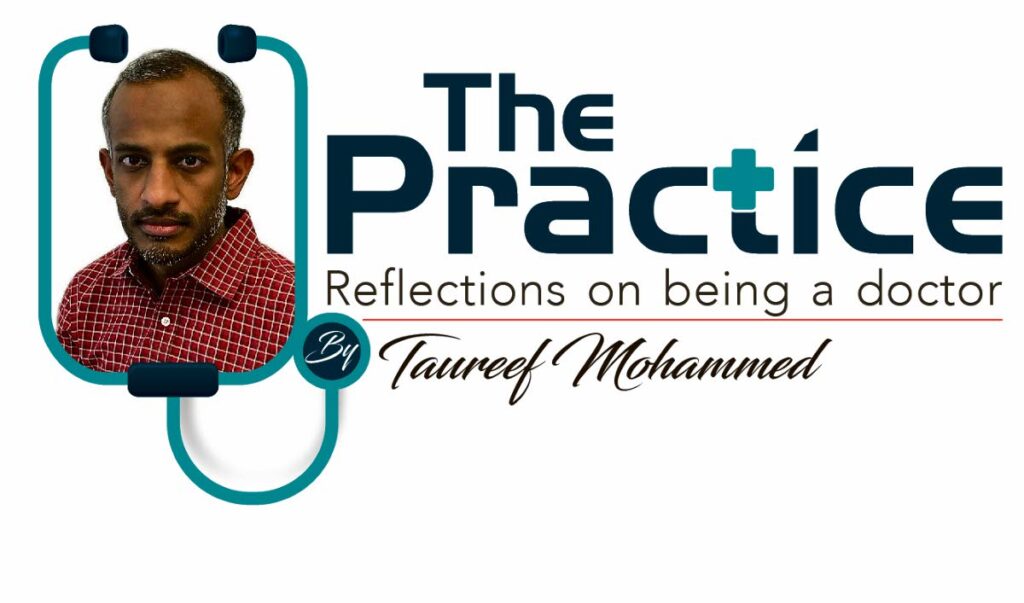The face of hunger

Taureef Mohammed
“WE DID everything the right way.”
Canada had told them they were the perfect immigrants: they were young, educated and employable. Nobody had sponsored them; they had qualified to come to Canada, scoring high on the points system.
I felt as though I knew this couple. They could be my family, my old school friends. Their surname was distinctly Indo-Caribbean. Their accent was instantly recognisable. Even the patient and the disease – an Indo-Caribbean male with diabetes and heart disease – felt close to home.
And so I was excited, perhaps even happy, to see them. It happened all the time with West Indian patients. I could get carried away talking about politics and cricket, needing to consciously remind myself not to forget about the disease and what the patient had been referred for. Most patients and their families fed my excitement.
But something was different with this couple. They seemed shy, guarded, embarrassed, confused, at a loss. They were in a knot, entangled by a series of unexpected twists and turns: a new diabetes diagnosis; a recent move to a new city; finding jobs, then losing them; rent.
Perhaps a typical immigrant story. Don’t worry, the happy ending will come. Just keep going, keep working. I was optimistic, and hopeful.
But all optimism and excitement were instantly doused when they mentioned the food bank.
I don’t know how exactly the conversation reached there, but perhaps everything – diabetes, food, heart disease, rent, jobs – was related, so it was always going to reach there.
Conversation usually flowed effortlessly with another immigrant who had shared a similar background. But not this time. I could not make sense of it. I did not know what to say.
“We would skip a meal some days. There’s a food bank in the area that we go to sometimes,” the middle-aged man said.
The image did not make sense to me. This was a working man. He had a job. How was it that in this fat, all-you-can-eat continent called North America a man could work a full-time job, follow all the rules, and not be able to afford food? These people were betrayed. They were sold dreams. Somebody had ripped them off.
After the rage settled, I felt embarrassed: I did not know. They could be my family, and I did not know they were hungry. And in the following days, when I looked into this further, I felt even more embarrassed. I did not know how dire the situation was.
According to 2024 data from Statistics Canada, 23 per cent of people living in Canada said they were likely to need help from a food bank in the next six months; for families with children, the number increased to 28 per cent.
According to HungerCount 2024, an annual report published by the organisation Food Banks Canada, March 2024, saw the highest number of visits to food banks in Canada in history; one-third of food bank clients were children; 32 per cent of clients were newcomers to Canada who had been in the country for ten years or less, newcomers like my patient, and me.
Meanwhile, according to data from the Food and Agriculture Organization (FAO) referenced in the December 2022 edition of the National Gas Company’s quarterly journal, GASCO News, Latin America and the Caribbean region had the second highest prevalence of food insecurity in the world at 40.6 per cent, second only to Africa. In the Caribbean, between 2019 and 2021, TT had the third highest prevalence of food insecurity, at 43.3 per cent, behind Jamaica (50.3 per cent) and Haiti (82.5 per cent).
“The face of hunger is real and it’s very close to home,” the Food Banks Canada website says. It continues: “Your neighbour, a work colleague, a friend, someone in your family; hunger isn’t an issue reserved solely for strangers or the homeless. Food insecurity can be found even within our closest circles and more often than not, these people go by quietly unnoticed.”
The year 2024 was a year of turmoil and doomscrolling: the US election, the Middle East, Russia, Ukraine, natural disasters ramped up by climate change, housing crises, rising inflation, rising food costs, the plague of far-right extremists, crime, refugee crises, immigration; reel after reel of the world spiralling out of control.
God alone knows how many faces of hunger went by quietly unnoticed.
Support your local food bank or the equivalent.

Comments
"The face of hunger"